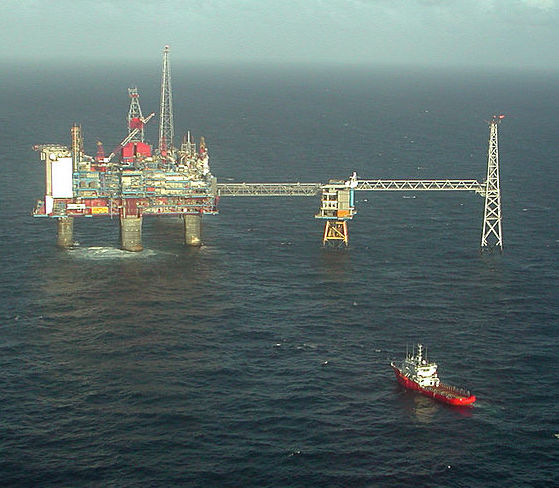New exploration licences granted by the government to boost declining North Sea oil production will have ‘at most a marginal effect’ in lowering bills for UK consumers, the Committee on Climate Change warned energy secretary Kwasi Kwarteng today.
As Vladimir Putin’s invasion of Ukraine this morning pushed Brent crude above $100 a barrel for the first time since 2014, Lord Deben, chair of the independent scientists advising Whitehall, writes that new applications for drilling rights must face ‘stringent tests’ on licences’ compatibility with Britain’s Net Zero goals.
In a public letter, Deben tells Kwarteng he would personally endorse a moratorium on new extraction of fossil fuels from the North Sea.
Refusing new licences would “send a clear signal to investors and consumers that the UK is committed” to its climate goals, and help to “strengthen climate ambition internationally”, Lord Deben writes.
“An end to UK exploration would send a clear signal to investors and consumers that the UK is committed to the 1.5°C global temperature goals ( of the Paris and Glasgow CoP26 summits)”.
Both statements, based on economics and climate science, will put the former Conservative environment minister and experts at odds with MPs on his party’s Net Zero far right group at Westminster.
But Deben accepts Britain’s energy security is outside his committee’s science remit. Neither could its scientists establish clearly whether new licences would significantly raise global carbon emissions.
“Any increases in UK extraction of oil and gas would have, at most, a marginal effect on the prices faced by UK consumers in future,” Lord Deben writes.
He concedes that “extraction from the North Sea has a relatively low carbon footprint ( – more clearly for gas than for oil) and the UK will continue to be a net importer of fossil fuels for the foreseeable future, implying there may be emissions advantages to UK production replacing imports”.
Two days ago Germany halted licencing of the now-completed £1.8 billion Nord Stream 2 gas pipeline. Russia provides around 40% of Europe’s gas, and 12% of the world’s oil.
Nickel and aluminium prices rose on world bourses this morning. Russia controls up to 12% and around 5% respectively of the world’s ore stocks of both metals.





With the UK’s bountiful wind, tidal and solar energy we could have weaned ourselves off fossil fuels in the ’80s. The rest of Europe would have followed and this current war and the past wars in the Middle East would have been avoided. No more excuses or delays – let’s please transition now to renewables as if our lives depended upon it.
What do knowledgeable others think? Isn’t there a former councillor in the Midlands, possibly an academic expert in engineering hay bailers and combine harvesters, then in filming motor sport events and collecting rents, recently investigated by council officials for suspected Islamophobia, who values his own vacuities higher than scientists’ discoveries, and trumpets the former?